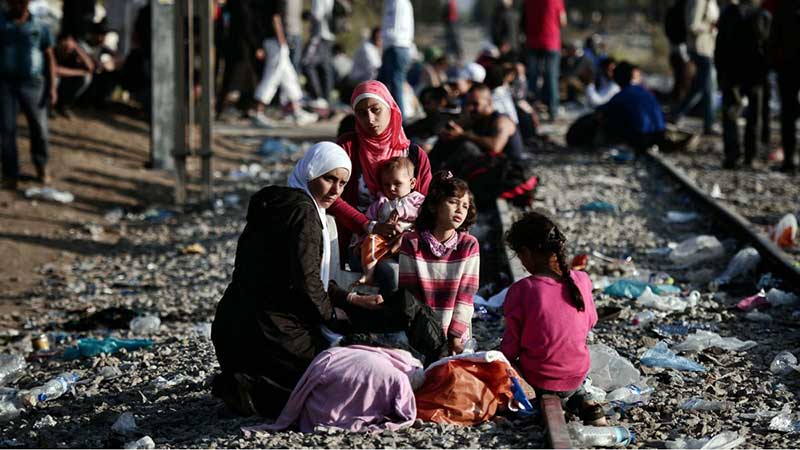The rejection by Catholic social organizations in Spain and other European countries of the agreement between the European Union and Turkey for the return of refugees who irregularly enter the Schengen area is an act of humanity and commitment to the teachings of the Gospel. The Church (and its members) cannot look the other way when hundreds of thousands of families with small children try to flee from war, violence, slavery, misery....
It is true that action must be taken to ensure that the flow of migrants does not cause chaos at the borders. In fact, the complaint of the transit countries (Greece, Hungary, Austria...) is not about opening their doors to those fleeing, but about the lack of coordination within the European Union.
In this regard, the document made public by Caritas, CONFER, the Social Sector of the Society of Jesus and Justice and Peace (later joined by other social institutions) offers solutions. Among others, it proposes "enable safe and legal access routes to Europe". as a way to fight against mafias; or "to establish a new system of distribution of the refugee population in Europe that is fair to the States and to the refugees.".
The response of Catholics can only be to welcome those who flee, those who seek refuge and a future. Europe's attitude can shame, provoke scandal. The Bishop of San Sebastián, José Ignacio Munilla, was very clear: Europe is "betraying their Christian roots." by signing the agreement with Turkey.
Nor should we forget that the war and the Daesh offensive in Syria and Iraq have hit not only Sunni Muslims, but have also caused the death and flight of hundreds of thousands of Christians, Yazidis and Shiites. Should we forget about them? The Church helps all refugees regardless of their creed, of course. But in a special way, it must come to the aid of our brothers and sisters in faith. Among the refugees who arrive in dinghies on the shores of Greece and then travel thousands of kilometers on foot to reach Germany, France or Denmark, there are also Syrian and Iraqi Christians. Christians who live in refugee camps or in reception centers alongside their Muslim compatriots. Christians who often suffer discrimination from other refugees and who feel abandoned in countries they thought were their brothers and sisters, but which nevertheless reject them. The Church is also with the Christian refugees. A Church that, in a praiseworthy ecumenical act, together with Protestants and Orthodox, helps all those who arrive: churches have been made available to welcome them, hundreds of volunteers have been mobilized, collections have been made, they have been given a voice?
The action of Christians is not a simple paternalistic act of charity, the result of the "sentimentalist" and "do-gooder" culture that seems to rule in certain sectors of European society. Such attitudes are all very well to mobilize society immediately in the face of a humanitarian crisis, but they end up being forgotten as soon as the media focus their attention on another issue. The Christian response goes beyond this. Organizations such as Caritas or Aid to the Church in Need have been helping refugees in their places of origin in Lebanon, Syria or Iraq for years. The advance of Daesh in Syria and Iraq has emptied these countries of Christians. In Syria, Christians have fled to Turkey, Lebanon and to areas controlled by the Bacher Al Asad regime. In Iraq, they have taken refuge mainly in Iraqi Kurdistan and Jordan.
Bishop Juan Antonio Menéndez of Astorga, a member of the Episcopal Commission for Migration, acknowledged that the refugee situation poses a series of challenges for the Church: "A humanitarian challenge that involves the defense of the dignity of life and of the person of refugees and forcibly displaced persons, support for family reunification and the reception, hospitality and solidarity with refugees. An ecclesial challenge that is expressed in the pastoral and spiritual care of Catholics of the Latin and Eastern Rite, in ecumenical and interreligious dialogue. A cultural challenge that commits us to build a culture of encounter, peace and stability"..
Let us hope that we, the citizens of Europe, can also take up these challenges to prevent Europe from betraying its traditional Christian values and ceasing to be Europe.












